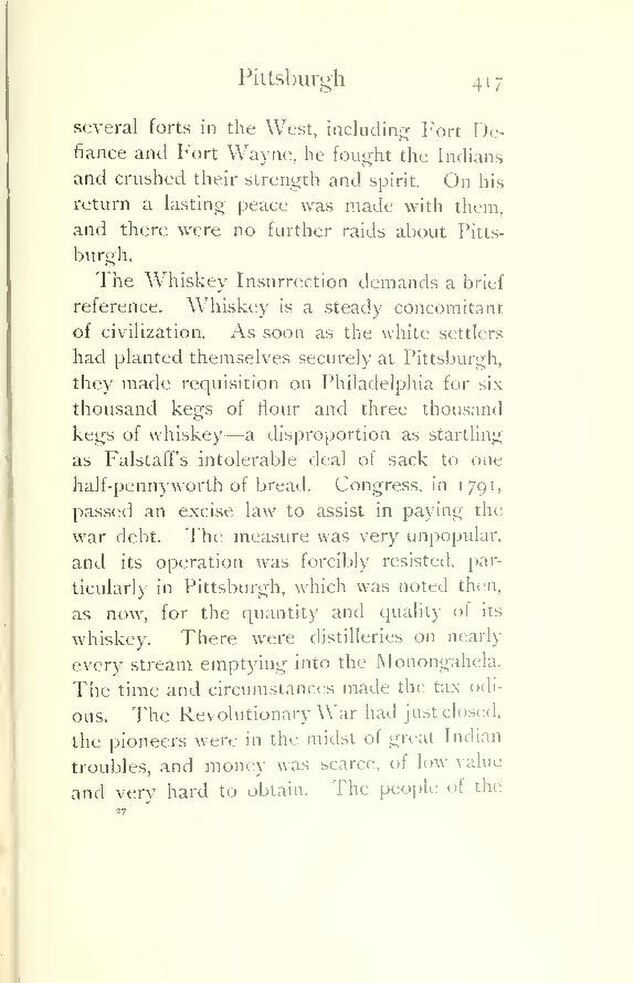several forts in the West, including Fort Defiance and Fort Wayne, he fought the Indians and crushed their strength and spirit. On his return a lasting peace was made with them, and there were no further raids about Pittsburgh.
The Whiskey Insurrection demands a brief reference. Whiskey is a steady concomitant of civilization. As soon as the white settlers had planted themselves securely at Pittsburgh, they made requisition on Philadelphia for six thousand kegs of flour and three thousand kegs of whiskey—a disproportion as startling as Falstaff's intolerable deal of sack to one half-pennyworth of bread. Congress, in 1791, passed an excise law to assist in paying the war debt. The measure was very unpopular, and its operation was forcibly resisted, particularly in Pittsburgh, which was noted then, as now, for the quantity and quality of its whiskey. There were distilleries on nearly every stream emptying into the Monongahela. The time and circumstances made the tax odious. The Revolutionary War had just closed, the pioneers were in the midst of great Indian troubles, and money was scarce, of low value and very hard to obtain. The people of the
